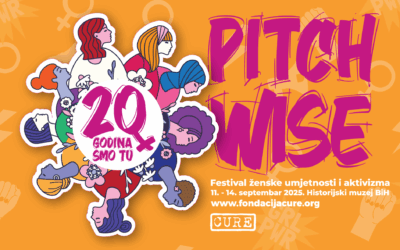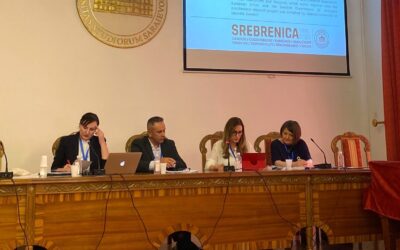
Bosnia and Herzegovina: Fourteen years on women raped in war continue to be denied their rights
30 September 2009
“This nation forgets everything. They forget about us victims. But I will never forget about what happened to me.”
Sabiha, interviewed by Amnesty International
” I do not know if it is possible to punish this crime. If justice exists at all?… Maybe somewhere but not here in Bosnia!”
Bakira interviewed by Amnesty International
Successive governments of Bosnia and Herzegovina have failed to provide justice for thousands of women and girls who were raped during the 1992-1995 war, Amnesty International said in a report published today.
“During the war, thousands of women and girls were raped, often with extreme brutality; many were held in prison camps, hotels, private houses where they were sexually exploited. Many women and girls were killed. To this day, survivors of these crimes have been denied access to justice. Those responsible for their suffering, members of military forces, the police, paramilitary groups, walk free. Some remain in positions of power or live in the same community as their victims,” said Nicola Duckworth, Europe and Central Asia Programme Director.
“The government of Bosnia and Herzegovina has an obligation to provide these victims of violations of international humanitarian law and crimes against humanity with access to justice and the full reparation to which they are entitled.”
“For this to happen, the authorities must ensure comprehensive investigations that lead to prosecutions of war crimes of sexual violence in the country. Without meaningful justice and full and effective reparation, victims continue to suffer the effects of these horrific crimes.”
The report, Whose justice? Bosnia and Herzegovina’s women still waiting http://www.amnesty.org/en/for-media/press-releases/ outlines the failure of the justice system in the country. It also focuses on the failure of the authorities to provide the women with reparations, including compensation for the crimes committed against them, and the violations of their rights.
“Many women who have survived sexual violence during the war cannot get any compensation due to the complex structures of the judicial and social welfare systems in the country. In comparison to other war victims, they suffer discrimination in access to social benefits,” said Nicola Duckworth.
Jasmina, a survivor of sexual violence during the war, told Amnesty International: “I can’t sleep without pills. I still get upset easily when people mention the war. An image, a memory, a TV spot can be a spark. I can’t stand it … I need help.”
The authorities in Bosnia and Herzegovina have failed to provide these women with access to adequate healthcare or psychological support, which is provided only by non-governmental organizations (NGOs) working with limited resources. A Bosnian NGO told Amnesty International that the vast majority of survivors of war crimes of sexual violence are not receiving any psychological assistance.
Thousands of women survivors also lost family members. Many are not able to find or maintain jobs because of their psychological condition. Many remain without a stable source of income and live in poverty, unable to buy the medicines they need.
As rape continues to be a taboo subject, in most cases the women face stigmatization rather than the recognition and vital assistance they need to help them rebuild their lives.
“The authorities must work with NGOs in developing a comprehensive strategy to ensure that survivors receive reparations, including adequate pensions, assistance with access to work and the highest achievable standard of heath-care. The government should support survivors of war crimes of sexual violence, to give them a voice to demand their rights and combat discrimination and stigmatization they face in every day life,” Nicola Duckworth said.
Background
Rape and other crimes of sexual violence occurred on a massive scale during the 1992-1995 war in Bosnia and Herzegovina. The International Criminal Tribunal for the former Yugoslavia (ICTY) was established in 1993 to prosecute serious violations of international humanitarian law, including sexual violence. However, the ICTY was only able to prosecute a limited number of the violations of international humanitarian law which took place during the wars in the former Yugoslavia. As of July 2009, the ICTY had prosecuted 18 cases related to sexual violence in Bosnia and Herzegovina.
The War Crimes Chamber of the State Court of Bosnia and Herzegovina was created in 2005, to investigate and prosecute crimes that could not be prosecuted by the ICTY. To date, only 12 men have been convicted for crimes of sexual violence.
See also: Bosnia-Herzegovina: Shelving justice – war crimes prosecutions in paralysis http://www.amnesty.org/en/library/info/EUR63/018/2003/en (AI Index: EUR 63/018/2003);
Bosnia-Herzegovina: Rape and Sexual Abuse by Armed Forces (AI Index: EUR 63/01/93)
Amnesty International report, “Whose justice” can be viewed here


